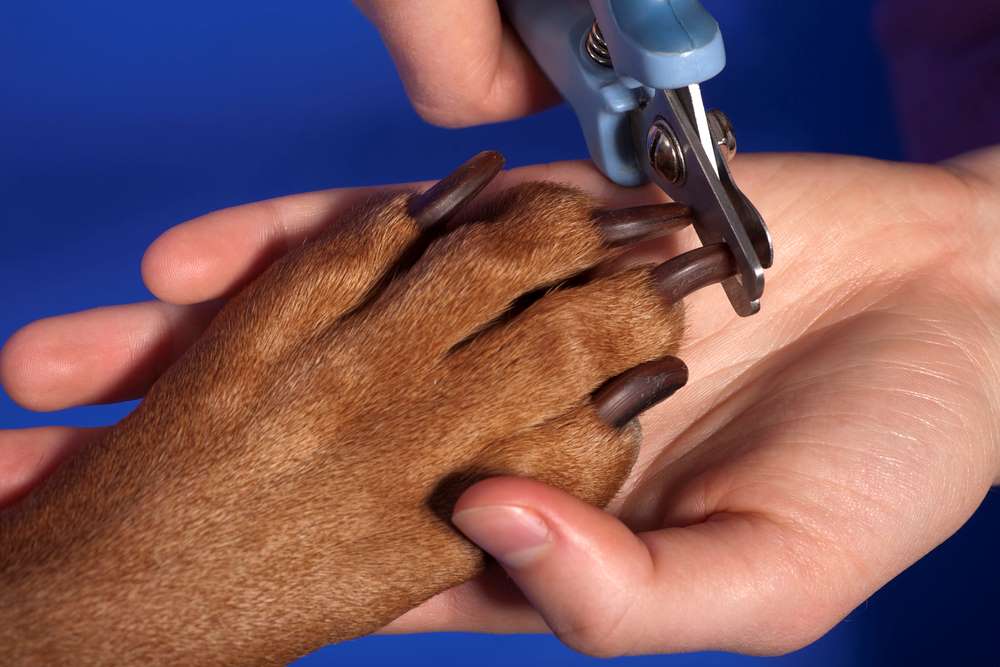Dog vaccinations are a fact of life for Weimaraner owners, but did you know that you might not be required to give every shot to your puppy or dog?
Depending on where you live, your vet may suggest certain dog vaccinations and put your Weinheimer on a standard dog vaccination schedule.
Having said that, you may be surprised by what vaccinations your vet recommends and when. And which ones are not really necessary.
Different Breeds have Different Needs
On-going research into the long-term effects of vaccinations on the Weimaraner breed, indicate that the traditional annual dog vaccine schedule may be contraindicated. That simply means it is not a good idea.
If you’ve ever owned a pet before, you’re probably very familiar with the routine of annual dog vaccinations. And many vets shame you into getting every single vaccine, whether they are best for your dog, or not.
Why would this be? Vaccines and medications are a good source of income for veterinarians. The markup on meds and vaccines is quite high. And, in addition to paying for the shots, you will be charged for an office visit by most vets.
Should You Follow a Dog Vaccination Schedule?
So why wouldn’t you just take your dog to the vet and get all the shots that they recommend? Your veterinarian is an expert, after all.
Recent research shows that giving all dogs vaccines on the same dog vaccinations schedule is not a good idea.
In fact, there is evidence that annual puppy vaccination or vaccinations given too closely together can actually harm your dog.
Therefore it’s essential to educate yourself on the various options available to your dog in order to protect his long term wellness.

Dog Vaccinations Side Effects
Just as children can have a reaction to a vaccine, your Weimaraner dog can react to a specific vaccine. Weimaraners with allergies, do tend to be sensitive to a lot of things, including vaccines.
The most common reaction to vaccines is pain, redness, irritation, loss of hair or a bump or swelling at the injection site. If your dog has a local reaction, you will notice it within 30 minutes, up to 2 weeks later. This usually goes away within a short time.
Your dog may also have some generalized illness symptoms after being vaccinated, like loss of appetite or lack of energy. This should go away within a day or two.
However, we shouldn’t become complacent about this. While some puppies just feel a little tired after a shot, others develop some very serious issues.
Serious Reactions to Dog Vaccinations
If your dog or puppy has a reaction that doesn’t go away in a day or two, it could be an indication of a far more serious condition.
Here are some of the possibilities:
Coonhound paralysis
Within 1-2 weeks of a vaccination, the dog’s hind legs become weak. Within 24-48 hours after that, the dog is partially paralyzed in all four legs. He may also have weakness in the face or throat. He will also have severe muscle loss within 2 weeks.
Most dogs will improve in 3 weeks, with complete recovery in 2-6 months. However, dogs with severe symptoms may not ever recover fully. And death can result from respiratory paralysis, or when a dog can’t breathe.
Hyper-pigmentation with hair loss
Dog breeds that are prone to this include the Bichon Frise, the poodle and the briard. This is a reaction to the vaccine, not a disease.
With this condition, you will see light brown to black velvety rough areas of skin in the legs and groin area. The edges are often red, indicating a secondary yeast or bacterial infection.
The affected area can spread to other parts of the dog’s body. With treatment, the symptoms will go away slowly, sometimes taking months.
If your dog has had this kind of vaccine reaction, she will be more likely to have an anaphalaxic reaction with the next vaccine given. When a dog has an anaphalaxic reaction, his symptoms develop rapidly.
Anaphylaxic reaction
This is a life threatening allergic reaction to a vaccine. The most common symptoms are restlessness, excitability, vomiting, drooling, difficulty breathing, pain in the abdomen, diarrhea, shock, collapse and convulsions. This dog vaccine reaction can also lead to death.
Injection site sarcoma
A bump or swelling at the site of an injection can lead to sarcoma or cancer in some dogs. If a lump does not go away in a couple of months, it should be checked by your vet.
The vaccines that cause a reaction most commonly are rabies, coronavirus, leptospira bacterin, parovirus and parenteral Bordetella.
Whether your Weimaraner dog has had a reaction to a vaccine or not, you should keep her indoors and observe her for an hour after each vaccination.
Dog Vaccinations Schedule
According to some dog breed organizations, your puppy should receive the DA2PP at his initial vet visit (without leptospirosis or corna). This combination should be administered again at three months and four months, again at one year.
After that, boosters should be spaced out at three year intervals unless blood levels indicate a specific need.
Rabies vaccinations should be given at 6 months of age, 18 months of age, and then given at three year intervals.
Depending on where you live, some vaccinations will probably be necessary. However, as a pet owner, you do have the right to decide which vaccinations to give your dog, and when…as long as you are within the legal requirements of your state or county.
Dog and Puppy Vaccinations – Do all dogs need them?
The American Kennel Club of America supports the idea that initial puppy vaccinations should include:
- distemper vaccine
- rabies vaccine
- parvo vaccine
- adenovirus vaccine
Additionally they recommend separating the rabies vaccination from the others. You should wait at least one month before administering the remaining shots. This is so your dog’s immune system can recover from the stress of the rabies shot.
After the initial round of vaccines, the suggested puppy vaccination schedule is once every three years.
If you wish to follow this recommendation, you’ll need to discuss your concerns and guidelines with your vet.
Some vets automatically advocate the standard annual shots. That means you have to make your wishes clear. Dog vaccinations are a huge source of revenue for both vets and drug companies.
You will, of course, have to follow the laws of your state and community. But you are probably not required to give ALL the shots recommended by your vet, to your dog.
How to Tell if a Vaccine is Needed
The best way to determine if a vaccine is necessary for your dog is by requesting that your vet run a blood titer.
This test will reveal the level of various substances like antibodies, present in your dog’s body. A titer will tell you if your dog actually need to be vaccinated.
This is especially important if your dog has had a reaction to a vaccine. You can ask that your vet do this kind of test to see if your dog really needs the vaccination.
Rabies is required by law, so your vet won’t agree to testing your dog and skipping this vaccination.
So, in the end, the final decision about vaccinations is up to you, the pet parent. Working with your vet, you need to come up with a reasonable Weimaraner dog puppy vaccination schedule for your dog.






Leave a Reply